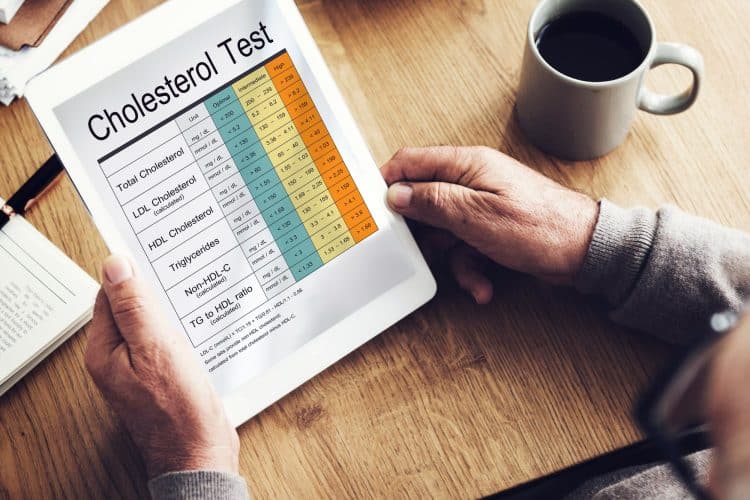It is common knowledge that intermittent fasting can help with weight loss. But did you know that it can also improve your blood pressure, heart health, diabetes, and cholesterol?
Intermittent fasting (IF) is a holistic approach to reducing weight. Beyond calorie restriction, it improves metabolic health. Research indicates that a few weeks of intermittent fasting reduces systolic and diastolic blood pressure by 4.5% and 2.6%. The study also revealed that the effects of intermittent fasting are long-term and persist for up to a year. [1]
This article will walk you through IF’s effects on a severe health condition that is often overlooked — high blood pressure. You’ll also learn how intermittent fasting reduces blood pressure and how to introduce intermittent fasting safely into your lifestyle.
What’s a Healthy Blood Pressure?

What is blood pressure, exactly? Blood pressure refers to the force of circulating blood on the artery walls. Arteries carry oxygen and other nutrients to the cells and help eliminate waste. Normal blood pressure (<120/80 mmHg) ensures proper blood flow from the heart to the body’s organs and tissues.
Blood pressure is represented by two numbers and measured in millimeters of mercury. The first number is the systolic pressure, the maximum pressure exerted in one heartbeat. The second number is the diastolic pressure, the minimum pressure between two heartbeats.
For the proper functioning of your body, your blood pressure should be within an optimum range, between 90/60 mmHg and 120/80 mmHg.
You have hypotension, or low blood pressure, when your blood pressure is too low. It can lead to fainting, dizziness, fatigue, and more. In the worst-case scenario, it can lead to circulatory collapse.
On the other hand, hypertension, or high blood pressure, is defined as blood pressure over 130/80 mmHg.
High Blood Pressure
High blood pressure is when the blood pressure is consistently higher than normal at 130/80 mm Hg. It occurs when the force of blood coursing through your arteries remains elevated for an extended period. This puts an extra strain on the heart as it pumps blood throughout the body. [2]
Did you know that 47% of all Americans have high blood pressure? The kicker is that many do not know that they have it. And it is for this reason that hypertension is also referred to as a silent killer. It is common for high blood pressure to go undetected until it is too late and the damage has already been done. [3]
Causes of High Blood Pressure
Elevated blood pressure can be categorized as primary or secondary. Primary hypertension doesn’t have any particular cause. People with primary hypertension may be predisposed due to several risk factors, including family history, obesity, smoking, genetics, a sedentary lifestyle, high alcohol consumption, and stress, to name a few. [4]
Secondary hypertension refers to elevated blood pressure with an identifiable cause. It contributes to 5%–10% of all cases. The risk factors for secondary hypertension include sleep apnea, kidney disorders, endocrine disorders, vascular abnormalities, supplements, and certain medications. [5]
So, anyone with a new diagnosis of hypertension should consult their healthcare provider to ensure that the cause isn’t dangerous.
Effects of Intermittent Fasting on Blood Pressure

High blood pressure is a common health condition.
Humans have the exceptional capability to accumulate energy for hard times when food is scarce. Yet, in the current world, food is available everywhere and is predominantly unhealthy. Across all species, from worms to rodents, dogs, monkeys, and even humans, very few interventions have been shown to extend life. Intermittent fasting is among them.
Can eating less affect your quality of life? Yes! Intermittent fasting can help lower blood pressure, reduce weight, control diabetes, and reduce cholesterol—the four important risk factors for heart disease.
Research on 1,422 people over 4–21 days showed that blood pressure had decreased along with decreased blood glucose levels. [6]
Another study of 23 adults on an eight-hour time-restricted feeding window revealed that the reduction in body weight was followed by a decrease in blood pressure, insulin resistance, LDL cholesterol, and triglycerides. [7]
However, if you are already taking blood pressure medications, intermittent fasting can cause a drop in blood pressure. On the other hand, fasting is one of the simplest ways to lower your blood pressure. The key is to find the right fasting plan that works best for you.
How Does Fasting Affect Blood Pressure?
Intermittent fasting reduces blood pressure by as much as 11 ± 4 mm Hg (systolic) and 10 ± 4 mm Hg (diastolic) over five weeks. However, how precisely intermittent fasting affects blood pressure is yet to be seen. In saying that, there are many other mechanisms involved in this relationship. [8]
Calorie restriction can lower blood pressure. And fasting is often associated with a lower calorie intake, which explains its effects on blood pressure. However, the health benefits of intermittent fasting go beyond calorie restriction and weight loss. Many recent studies have highlighted the cardiovascular benefits of fasting.
Research also suggests that one month of alternate-day fasting lowers blood pressure in healthy, nonobese humans. In addition, it also enhances parasympathetic activity, wherein the nervous system is in a relaxed state. This contradicts the high pressure in which the patients are on high alert. [9]
Studies have also shown that intermittent fasting alters the structure of the gut microbiota, consequently lowering blood pressure. Otherwise called gut microbiome or gut flora, gut microbiota refers to the microorganisms colonizing the GI tract, including bacteria, viruses, fungi, and archaea. [10]
How to Safely Incorporate Intermittent Fasting into Your Lifestyle?

Be it for medical reasons or health benefits, you must consult your healthcare provider before starting intermittent fasting. They can guide you and advise you on the associated benefits and risks. Your doctor may also change your medications to accommodate the fast.
If you are new to intermittent fasting, ease into the fast. You can achieve this by reducing your eating window gradually until you reach the duration you are comfortable with.
That said, you must plan your fast based on your lifestyle. Generally, many choose to fast in the morning, the busiest time of the day. Choose your fasting window when you are less likely to be socializing. For example, if you eat dinner with your family, you should fast in the morning.
Your eating window should also center around your appetite (when you are most hungry). If you are a seasoned faster, take your fasting regime to the next level: alternate day or 5:2 fasting.
Having said that, fasting is not for everyone; these folks should avoid fasting:
- Those under 18 years of age (children and teenagers)
- Those over 65 years of age
- Pregnant and breastfeeding women
- Folks with eating disorders
- Those with underlying medical conditions like type-1 diabetes
- People with immunodeficiency
How To Use Intermittent Fasting for Blood Pressure Control
To start with, choose a fasting plan. There are several different methods of fasting, all of which involve eating and fasting periods. Some popular fasting methods include:
- The 16:8 method: This method involves restricting your eating period to eight hours daily. You may be skipping breakfast or having an early dinner.
- The 5:2 method: This method involves fasting (restricting calories to 500-600) two days a week and then eating normally for the rest of the week.
- The Eat-Stop-Eat method: This method is quite extreme and involves fasting 24 hours, 1-2 days a week.
Depending on your goal, your plan may allow minimal fluid intake. In the eating window, however, the foods should combine protein, fat, and complex carbs. Ensure that you obtain important nutrition during this period.
Plan Your Meals

Intermittent fasting only works if you make wise meal choices. Make sure that you have adequate nutrition in every meal. With IF, you already consume less, so make every calorie count.
Have high-quality fiber and meat before fasting. It keeps you feeling full for longer. Healthy foods to incorporate into your pre-fast meal include
- Whole grains
- Fruits and vegetables for hydration
- Low-fat yogurt
- Foods high in lean protein, like chicken, fish, or legumes like peas and lentils
Avoid foods high in sodium, like canned soups or pizzas, as they may cause bloating.
You must plan your meals and track your calorie intake while intermittent fasting. Meal planning not only saves time and money, but it also reduces waste.
Incorporate Heart-Healthy Foods into Your Diet
To improve heart health, include foods rich in fiber and healthy fats in your diet. Healthy fats such as salmon, olive oil, walnuts, and avocado reduce the risk of heart disease. Eating one or two portions of these superfoods daily is recommended.
In addition, include at least 30 grams of fiber in your everyday diet to reduce your risk of heart disease, diabetes, and certain cancers. Finally, incorporate whole grains such as oatmeal, quinoa, lentils, chickpeas, kidney beans, nuts, seeds, fruit, and vegetables into your diet.
Include Mineral-Rich Foods in Your Diet
Low mineral intake among high blood pressure patients was first detected in 1984 by the first National Health and Nutrition Examination Survey (NHANES). Further analysis of the NHANES III and NHANES IV surveys also revealed findings similar to NHANES I. [11]
Minerals such as magnesium, calcium, and potassium help lower high blood pressure. Studies indicate increased calcium, magnesium, and potassium intake and decreased sodium intake lower blood pressure. [12]
How does it work? Magnesium and potassium relax blood vessels, thereby reducing blood pressure, while calcium helps the blood vessels tighten and loosen when needed. [13]
All these minerals occur in our daily diet, so no supplements are needed.
- Magnesium: Whole grains, legumes, cooked leafy greens, pumpkin seeds, and potatoes
- Potassium: Prunes, Sweet potatoes, citrus fruits, bananas, cantaloupe, beets
- Calcium: Greek yogurt, whole fat milk, cooked leafy greens, canned salmon with bones, white beans, firm tofu, almonds
Reduce Your Salt Intake
The reduction of salt intake is directly related to increased blood pressure. Salt contains sodium, a mineral that helps maintain fluid balance in the body. But with too much sodium, your body can hold onto more water, putting unnecessary pressure on the arteries.
However, you should not cut out all forms of sodium, including salt. You need sodium to maintain fluid balance. Instead, try reducing ultra-processed and pre-packaged foods. It will reduce your salt intake to a great extent. Opt for homemade, whole-food-based meals for better nutrition. Opt for foods with 15% DV or less sodium; 5% DV or less is best. [14]
Wrapping Up
High blood pressure is a common health condition affecting more than 50% of Americans. It also increases your risk for severe conditions such as heart disease, stroke, etc.
According to research, intermittent fasting is the cornerstone of lowering blood pressure. Additionally, fasting offers more health benefits, such as weight loss, improved insulin resistance, and reduced cholesterol, all of which are key to improving heart health.
If you want to try intermittent fasting, choose a method that suits your lifestyle. One of the popular fasting methods involves fasting 16 hours a day and eating in an eight-hour window.
However, intermittent fasting is not for everyone, especially if you are a teenager or senior. If you are on medications, consult your healthcare provider before starting a fasting regimen.
References
- Hoddy, Kristin K., et al. “Intermittent Fasting and Metabolic Health: From Religious Fast to Time-Restricted Feeding.” NCBI, 28 July 2020.
- “Understanding Blood Pressure Readings.” American Heart Association.
- “Facts About Hypertension | cdc.gov.” Centers for Disease Control and Prevention.
- Booth, John N., et al. “Trends in Prehypertension and Hypertension Risk Factors in US Adults: 1999-2012.” PubMed, 12 Jun 2017.
- Hegde, Sharana, et al. “Secondary Hypertension – StatPearls.” NCBI, 23 November 2022.
- Buchinger Wilhelmi Clinic, Überlingen, Germany, et al. “Safety, health improvement, and well-being during a 4 to 21-day fasting period in an observational study including 1422 subjects.” NCBI, 2 January 2019.
- Gabel, Kelseya, et al. “Effects of 8-hour time restricted feeding on body weight and metabolic disease risk factors in obese adults: A pilot study.” IOS Press Content Library 15 June 2018.
- Sutton, Elizabeth F., et al. “Early Time-Restricted Feeding Improves Insulin Sensitivity, Blood Pressure, and Oxidative Stress Even without Weight Loss in Men with Prediabetes.” Cell, 10 May 2018.
- Gonzalez, Joshua Eric, and William Harold Cooke. “Influence of an acute fast on ambulatory blood pressure and autonomic cardiovascular control.” Physiology, 02 May 2022.
- Shi, Huanan, et al. “Restructuring the Gut Microbiota by Intermittent Fasting Lowers Blood Pressure.” Ahajournals, 18 Feb 2021.
- Townsend, Marilyn S., et al. “Low mineral intake is associated with high systolic blood pressure in the Third and Fourth National Health and Nutrition Examination Surveys: could we all be right?” PubMed, 17 Sep 2004.
- Karppanen H., et al. “Why and how to implement sodium, potassium, calcium, and magnesium changes in food items and diets?” PubMed, 19 Dec 2005.
- Houston, Mark C., and Karen J. Harper. “Potassium, Magnesium, and Calcium: Their Role in Both the Cause and Treatment of Hypertension.” Wiley Online Library, 22 Aug 2008
- Food and Drug Administration. “The Lows and Highs of Percent Daily Value on the Label.” FDA, 25 February 2022


